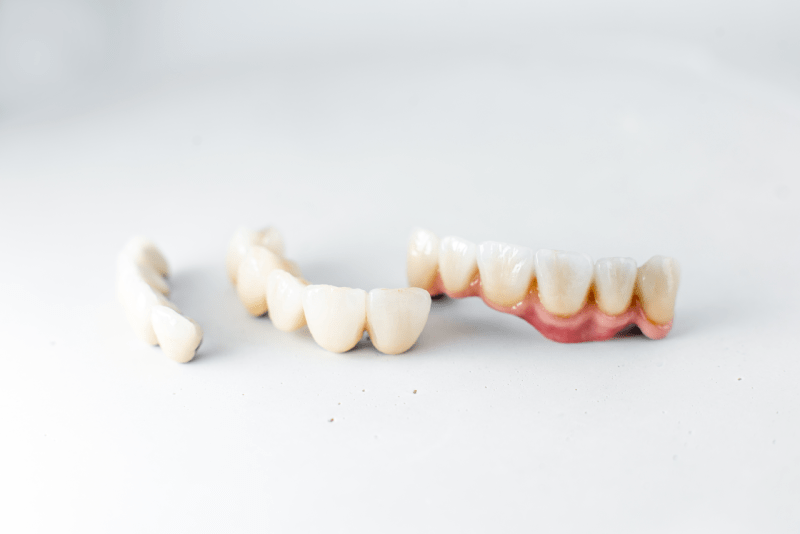What Are The Most Basic Candidacy Criteria For Dental Veneers?
To be an ideal candidate for dental veneers, you must first have overall good oral health. The health of your teeth and gums is vital for the success of the treatment. Any existing problems such as gum diseases or cavities must be treated before starting the veneer procedure.
The veneer must be built on a solid foundation, so your tooth structure needs to be strong enough. Additionally, it is important that you do not have habits like teeth grinding (bruxism) or that these habits have been treated, as these can damage the veneers. Finally, having realistic aesthetic expectations and being able to communicate openly with your dentist are critical factors for a successful treatment process. These basic criteria ensure you get a successful and long-lasting result.
How Does Gum Health Affect My Veneer Candidacy?
Gum health is one of the most important factors that determine whether you are a candidate for dental veneers. Dental veneers must be in harmony with the gums; therefore, problems such as gum disease or inflammation must be completely resolved before starting the veneer procedure.
Veneers placed on inflamed or bleeding gums can lead to incompatibilities and aesthetic problems after healing. Conditions such as gum recession can cause the edges of the veneer to be exposed, resulting in an unaesthetic appearance. Therefore, having healthy gums is an indispensable prerequisite for the veneer to look natural and beautiful.
Can I Get Veneers For My Crooked Teeth?
Yes, dental veneers can provide an effective solution for correcting mild to moderate tooth crookedness. However, veneers only provide an aesthetic correction; they do not change the position of the teeth. Your dentist will evaluate how crooked your teeth are, and if the crookedness is too severe, they may recommend a more radical solution such as orthodontic treatment (braces or clear aligners). Dental veneers can reshape and align your teeth to create a straighter and more symmetrical smile. This is an ideal option for patients who are looking for a quick fix and do not need comprehensive orthodontic treatment.
Are Veneers Suitable For Gaps Between My Teeth?
Gaps between teeth, medically known as diastema, can be easily closed with dental veneers. This is a very effective solution, especially for gaps in the front teeth. Your dentist will design custom veneers for each tooth to fill the gaps, providing a more aesthetic and integrated appearance.
This procedure gives your teeth a wider and fuller shape, naturally closing the gaps. The size and location of the gaps are the factors that determine whether veneers can be applied. The treatment provides an aesthetic solution without harming your teeth.
How Do Teeth Color Issues Affect My Veneer Candidacy?
Dental veneers are one of the best solutions for permanent tooth discoloration. In cases where teeth whitening methods are not effective, veneers can completely change the color of your teeth. Your dentist will choose the most suitable veneer color for your desired level of whiteness and natural tooth shade, giving you a bright and new smile. Veneers are resistant to staining, so you can maintain your new and white smile for many years. Therefore, individuals with permanent discoloration are very suitable candidates for dental veneers.
Is There an Age Limit for Dental Veneers?
There is a minimum age limit for dental veneer treatment. It is generally a suitable treatment for individuals whose jaw and tooth development is complete. Therefore, dentists usually recommend that veneers be done on individuals who are are 18 years of age or older. Veneers placed at a younger age can lead to incompatibilities and problems as the teeth and jaw continue to develop. For aesthetic problems in individuals younger than this age, reversible methods such as orthodontic treatment are often preferred.
Does My Teeth Grinding Habit Prevent Me From Getting Veneers?
Teeth grinding (bruxism) poses a serious risk factor for dental veneers. This habit can cause the veneers to break, crack, or become dislodged. Therefore, dentists usually state that patients with a bruxism habit should first have this problem treated. The use of a night guard is an effective solution to prevent the damage that teeth grinding can cause to veneers. If you have a teeth grinding habit, it is of vital importance to consult with a dentist before getting veneers and create a plan to manage this condition.
How Important Is Oral Hygiene in My Veneer Candidacy?
Impeccable oral hygiene is one of the most important candidacy criteria for dental veneer treatment. Although veneers do not decay directly, bacteria and food debris that accumulate at the edges and under the veneer can cause decay in the underlying natural tooth. Therefore, patients considering getting veneers must have the habit of regularly brushing their teeth, using dental floss, and completing cleaning with mouthwash. Poor oral hygiene can lead to gum inflammation and tooth loss, seriously shortening the life of the veneer.
Are My Old Fillings Suitable For Veneers?
The presence of old or large fillings in your teeth can affect your veneer candidacy. Your dentist will evaluate the condition of the filling and the health of the underlying tooth tissue. If the filling is large and the underlying tooth tissue is weak, it may be necessary to consider replacing the filling or a more comprehensive treatment such as a crown instead of a veneer. However, small and healthy fillings do not pose an obstacle to veneers. Your dentist can integrate your existing fillings under the veneer and create a treatment plan.
Can I Get Veneers For a Tooth That Has Undergone Root Canal Treatment?
Yes, you can get veneers for a tooth that has undergone root canal treatment, and this is often recommended. Teeth that have undergone root canal treatment can become more brittle due to changes in their internal structure. Veneers are an ideal solution to protect and strengthen such teeth. The veneer completely covers the outer surface of the tooth, preventing it from breaking or cracking and giving it a natural appearance. Your dentist will check the general health of the root-canaled tooth before the veneer to make a final decision on its suitability.

How Does Smile Analysis Determine My Veneer Candidacy?
Smile analysis is an important step used to determine whether you are a candidate for dental veneers and to determine the most suitable treatment plan. Your dentist analyzes your facial features, lip line, and the size and shape of your teeth to determine the most compatible veneer design for your smile. This analysis ensures that the veneers have a natural appearance and integrate with your face. Digital smile design technology makes this process even more precise and provides you with a preview of your new smile before the treatment begins.
Are Veneers Suitable For My Very Small Teeth?
Yes, dental veneers are a perfect solution for enlarging very small teeth and making them proportional to other teeth. Your teeth may be short due to genetic factors or wear over time. Your dentist will custom-design the veneers to make your teeth look longer and more aesthetic. This way, you can achieve a more symmetrical and aesthetic smile. Increasing the size of your teeth with veneers not only improves the aesthetic appearance but also can improve the chewing function. This treatment method is ideal for patients who have congenitally small teeth or teeth that have been shortened due to wear over time.
Can I Get Veneers If I Have a Missing Tooth?
Dental veneers alone are not a sufficient solution to fill missing tooth gaps. If you have a single missing tooth and have healthy teeth on both sides of this gap, you can get a dental bridge. A dental bridge is a type of veneer that fills the missing tooth space. However, veneers are only applied to your existing teeth. In this case, dental veneers can only be used to improve your existing teeth. Implant treatment may be a more suitable option to replace your missing teeth.
How Does My Jaw Alignment Affect My Veneer Candidacy?
Serious problems with jaw alignment can affect your dental veneer candidacy. Especially conditions like severe overbite (where the upper teeth excessively overlap the lower teeth) or underbite (where the lower teeth excessively overlap the upper teeth) can put excessive pressure on the veneers, causing them to break or become dislodged. In such cases, more comprehensive solutions such as orthodontic treatment or orthognathic surgery may be recommended first. However, mild alignment problems can be corrected with veneers.
What is the Difference Between Veneers and Crowns?
Veneers and crowns are two different dental restoration methods used for different purposes. A veneer is a thin layer that is bonded only to the front surface of the tooth and is generally used for cosmetic purposes. A crown, on the other hand, is like a “cap” that covers the entire tooth and is used to restore the tooth’s function and strength. It is usually preferred for fractured, cracked, or heavily filled teeth. If your tooth is healthy but you want an aesthetic change, a veneer is a better candidacy option; if your tooth is damaged, a crown is a better option.
Do My Sensitive Teeth Prevent Me From Getting Veneers?
Dental veneer treatment can be a solution for sensitive teeth. The veneer can protect the sensitive surface of the tooth, reducing the pain caused by cold and hot foods. However, it is normal to experience sensitivity for the first few days after the veneer procedure. If the sensitivity of your teeth is very severe, your dentist will investigate the cause of the sensitivity and apply appropriate treatment before starting the veneer procedure. This way, your post-treatment comfort is increased and a more successful result is obtained.
Does Teeth Whitening Affect My Veneer Candidacy?
Teeth whitening does not directly affect your veneer candidacy but can be an important part of the treatment plan. If you are only getting veneers on a few teeth, the color of the veneers will be determined by the color of your other natural teeth. Therefore, whitening your teeth before the veneer procedure will ensure you get a more integrated and aesthetic result. Since veneers do not respond to the whitening process, your other teeth need to match the color of the veneers.
Are Overbite or Underbite an Obstacle for Veneers?
Mild cases of overbite or underbite can be corrected with dental veneers, and these conditions do not prevent your veneer candidacy. Veneers can create a more harmonious smile in such cases by playing with the size and shape of the teeth. However, if there is a serious problem with your jaw structure or the alignment of your teeth, dental veneers alone may not be a solution. In this case, more comprehensive treatments such as orthodontic treatment or jaw surgery should be evaluated. You should make the most correct decision with your dentist.
Can Dental Veneers Repair Tooth Fractures?
Yes, dental veneers are a great solution for repairing minor tooth fractures and cracks. The veneer completely covers the front surface of the fractured or cracked tooth, both correcting the tooth’s aesthetic appearance and preventing it from being further damaged. This also increases the tooth’s chewing strength. However, if the fracture or crack extends to the nerve of the tooth, additional procedures such as root canal treatment may be required before the veneer.
Can I Get Veneers for Irregular Teeth?
Yes, dental veneers are an effective method to correct irregular teeth. Veneers can adjust the size, shape, and length of the teeth, providing a more uniform tooth alignment appearance. Veneers can create a more symmetrical and aesthetic smile by closing gaps between teeth and evening out teeth of different lengths. This treatment is ideal for patients with mild irregularities who are looking for a quick fix.
Does Smoking Affect My Veneer Candidacy?
Smoking does not directly prevent your dental veneer candidacy, but it can negatively affect the life and appearance of your veneers. Cigarette smoke can cause staining, especially on composite veneers, and this can cause the veneers to lose their brightness. In addition, smoking increases the risk of gum disease and can cause gum recession. This can lead to the edges of the veneers being exposed and causing aesthetic problems. Therefore, it is recommended to quit smoking for the best results.
What Are the Differences Between Porcelain and Composite Veneers?
Porcelain and composite veneers affect candidacy criteria differently. Porcelain veneers are more durable and resistant to staining, but they take more time to apply. Composite veneers are more affordable and can usually be applied in a single visit, but they can stain over time and are less durable than porcelain. If you are looking for a quick and economical solution, composite veneers are a better candidacy option; if you want a longer-lasting and more aesthetic solution, porcelain veneers are a better option.
Can a Dentist Decide on My Candidacy Without a Face-to-Face Examination?
A dentist can provide an initial assessment of your veneer candidacy by offering an online consultation service. They can create a preliminary plan by examining your intraoral photos and dental X-rays. However, the final candidacy decision is made based on a detailed physical examination of your teeth and jaw structure. In this examination, the strength of your teeth, the condition of your gums, and your overall oral health are checked. A face-to-face examination is indispensable for creating the most accurate and successful treatment plan.
How Important Is Digital Smile Design in My Candidacy?
Digital smile design (DSD) plays a revolutionary role in determining your dental veneer candidacy and treatment plan. With this technology, your dentist digitally analyzes your facial features, lip line, and teeth. With this analysis, they determine the most compatible veneer design specifically for you. You can see a simulation of how your new smile will look before the treatment begins. This ensures that your expectations are clearly met and you achieve the smile you have dreamed of as a result of the treatment.

Is There a Minimum Number of Veneers to Get?
There is no specific minimum number of veneers to get. You can get even just a single veneer if the color or shape of one of your teeth is incompatible with your other teeth. However, to achieve a more symmetrical and integrated smile, it is generally recommended to get veneers on all of the front teeth (the front 4-6 teeth on the upper and lower jaws). This significantly improves the overall aesthetics of your smile. Your dentist will determine the most suitable number of veneers for you.
Does Gum Recession Affect My Veneer Candidacy?
Gum recession can pose a serious problem for dental veneers. Receded gums expose the edges of the veneers, which not only creates an aesthetic problem but also makes the underlying tooth roots vulnerable to decay. In individuals with gum recession, the cause of this condition must first be treated. If the recession cannot be stopped or is too advanced, your dentist may recommend another treatment method instead of veneers.
Are Veneers a Good Idea for Healthy Teeth?
Yes, getting veneers for healthy teeth is a good idea to whiten your teeth, change their shape or size, and fix minor imperfections. Since the veneer is built on a solid foundation, healthy teeth are ideal for veneer treatment. Veneers give your teeth a better appearance while also protecting the front surface of the teeth and increasing their durability. However, it is important to discuss your aesthetic expectations and needs in detail with your dentist.
Can I Get Veneers If I Have a Dental Bridge?
If you have an existing dental bridge, veneer treatment cannot improve the teeth attached to the bridge. Dental veneers are applied to your natural teeth. If you have healthy teeth next to your bridge or in another area where you want to get veneers, this is possible. However, the teeth included in the bridge may need to have the bridge replaced, not just a veneer. Your dentist will evaluate your mouth structure and provide the most correct treatment plan.
Can I Be a Candidate If I Have Cavities?
No, if you have cavities in your teeth, you are not a suitable candidate for dental veneer treatment. Cavities must be treated before starting the veneer procedure. A veneer cannot be applied over a decayed tooth, as this can cause the decay to progress and lead to the complete loss of the tooth. Your dentist will clean and restore your decayed teeth and then re-evaluate your suitability for veneer treatment.
Does My General Health Affect My Veneer Candidacy?
Yes, your general health can affect your dental veneer candidacy. Chronic conditions such as uncontrolled diabetes, immune system diseases, or bleeding disorders can affect the healing process. In addition, conditions like osteoporosis can also affect jaw health. Your dentist will review your general health status and the medications you use before the treatment to decide if you are suitable for the treatment.
Can I Get Veneers After Orthodontic Treatment?
Yes, getting veneers after orthodontic treatment is a very common practice. Orthodontic treatment brings your teeth into the correct position. However, sometimes the size, shape, or color of the teeth may still not be aesthetically sufficient. In this case, dental veneers can perfect your smile by reshaping your teeth and adding an aesthetic touch. This combination gives the best results both functionally and aesthetically.
Can I Get Veneers for My Very Short Teeth?
Yes, dental veneers are an ideal solution for lengthening very short teeth and giving them a more proportional appearance. Your teeth may be short due to genetic factors or wear due to age. Your dentist will design the veneers to make your teeth look longer and more aesthetic. This way, your smile becomes fuller and more attractive. Veneers also increase your chewing strength and protect your teeth.
Can I Get Veneers If I Have a Large Filling on My Front Tooth?
If you have a large filling on your front tooth, a full crown (veneer) treatment may be more suitable than a dental veneer. Large fillings weaken the structure of the tooth and can prevent the veneer from finding sufficient support. A crown, because it covers the entire tooth, offers a more solid and durable solution. Your dentist will evaluate the condition of your tooth and decide on the most suitable treatment method.
How Can I Start the Candidacy Process?
The first step you should take to start the dental veneer candidacy process is to contact a reliable dentist or a health tourism consultant. You can start this process by contacting Cure Holiday. Experts will organize an online consultation session with you to gather preliminary information about your oral health and evaluate your suitability. Then, a personalized treatment plan is created and you are provided with a consultation with the most experienced dentists in Turkey.
Why Should I Manage My Candidacy Process with Cure Holiday?
Cure Holiday helps you manage the best candidacy process for dental veneer treatment. Its expert team selects the most suitable clinics and dentists for you, creates your treatment plan, and organizes your travel. They answer all your questions before you come to Turkey and guide you at every stage of the treatment process. This way, you save both time and money and have a safe and comfortable treatment experience.
How Does the Process Proceed After Candidacy Approval?
After you are determined to be a suitable candidate for dental veneers, the treatment process begins. Your dentist will review the treatment plan and your expectations one more time. Then, appointments are scheduled for the preparation of your teeth and taking measurements. During this process, you are provided with temporary veneers so you can continue your daily life. Finally, your permanent veneers are placed, and you continue your life with your new smile.
To get more information or create a personalized treatment plan, you can contact Cure Holiday. We are happy to help you on your way to the smile of your dreams.



